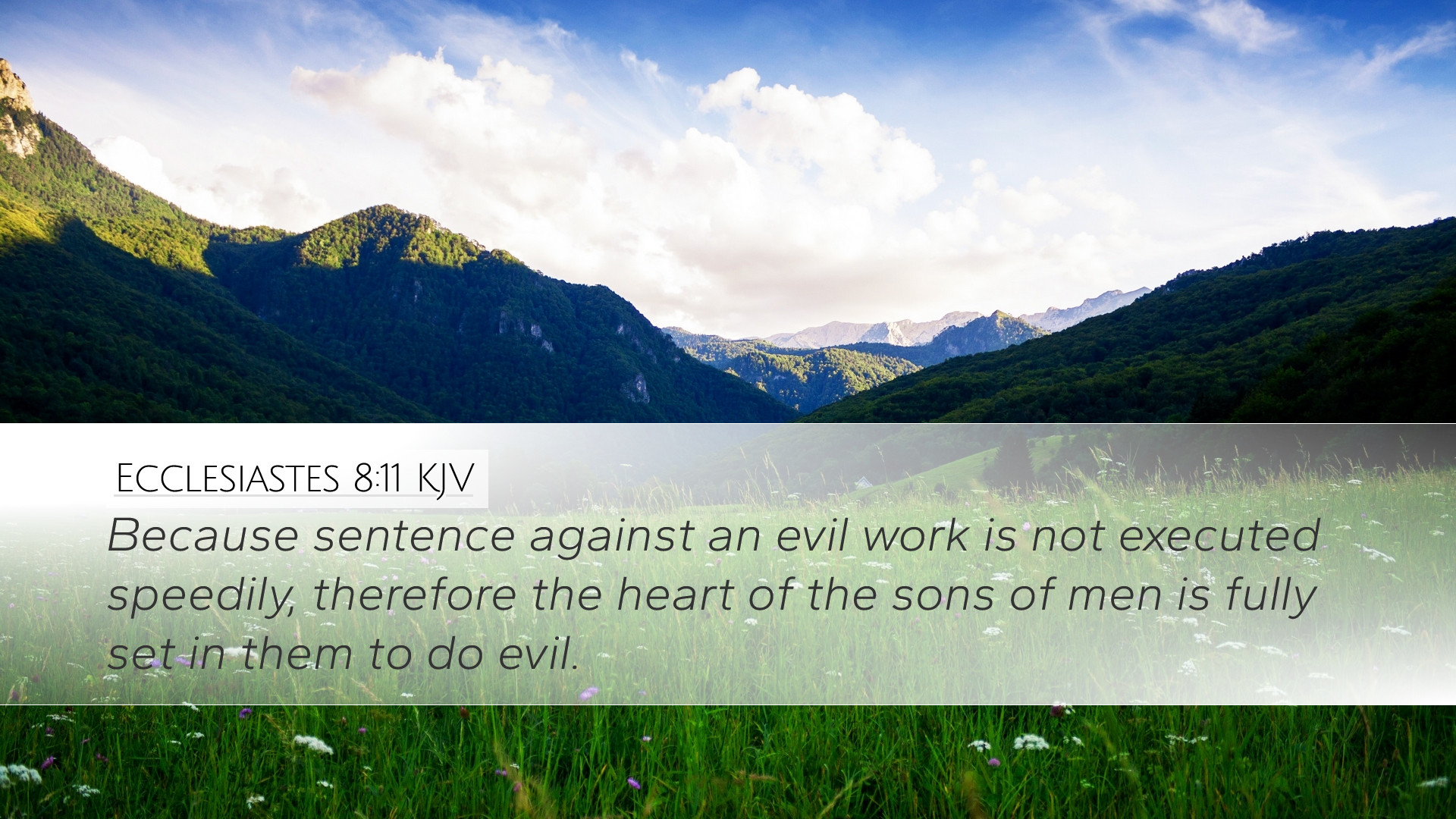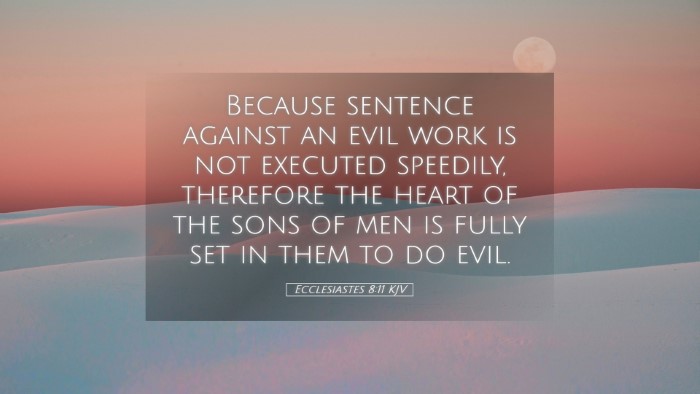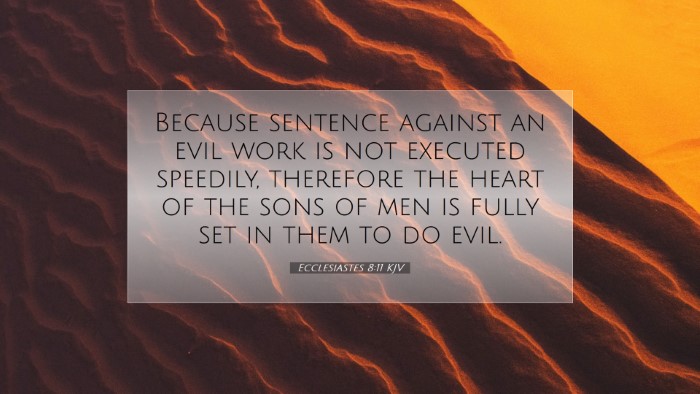Commentary on Ecclesiastes 8:11
Bible Verse: "Because the sentence against an evil deed is not executed speedily, therefore the heart of the sons of men is fully set in them to do evil." (Ecclesiastes 8:11)
This verse presents a poignant observation on human nature and the judicial processes within society, articulating the consequences of delayed justice. Drawing upon the insights of esteemed commentators such as Matthew Henry, Albert Barnes, and Adam Clarke, we can explore its multifaceted interpretations and applications.
Contextual Analysis
Ecclesiastes, often associated with King Solomon, reflects on the meaning and transience of life. In this particular verse, the Preacher notes a troubling reality about moral behavior and societal justice. The overarching theme is the perplexity of life under the sun, especially regarding the apparent prosperity of the wicked and the suffering of the righteous.
The Delay of Justice
Matthew Henry emphasizes that the delayed execution of justice can lead to a sense of security among wrongdoers. He articulates that when the consequences of evil deeds are not immediately apparent, individuals may grow emboldened in their sinful actions:
- "This serves as a warning about the deceptiveness of temporal advantages enjoyed by the wicked."
- "The longer justice is delayed, the more it can provoke a heart to persist in wrongdoing."
Henry points out that this dynamic can create a vicious cycle, where unchecked sin leads to further sinful behavior, reinforcing the need for immediate and effective justice.
Human Nature and Wickedness
Albert Barnes provides further insight into the nature of humanity as depicted in this verse. He notes that humans often have a propensity toward evil, and the absence of immediate repercussions can set the heart towards wickedness:
- "Men rationalize that if there are no immediate consequences for their actions, those actions must be acceptable."
- "This speaks to the broader human condition, reflecting a tendency to ignore moral law when not enforced."
Barnes emphasizes the danger of a delayed response to sin, suggesting that it breeds complacency among sinners and challenges the moral fabric of society.
Implications for Justice
Adam Clarke offers a theological perspective on the implications of this verse regarding divine justice. He asserts that while it appears that earthly justice is delayed, God's ultimate judgment is never far off. Clarke's observations include:
- "The providence of God operates in His timing, which may not align with human expectations."
- "Although evil may seem to flourish, it is ultimately subject to divine accountability."
Clarke encourages readers to recognize that even though earthly authorities may fail to act swiftly against wrong, God’s plan for justice is sovereign and inexorable.
The Societal Impact of Apathy
All commentators converge on the notion that the delay of justice not only affects individuals but also has widespread implications for society. As Matthew Henry succinctly puts it, "The wiggle room provided by delayed judgments fosters a culture where sin is normalized."
This culture of apathy towards evil can lead to:
- A breakdown of social norms and ethical standards.
- A temptation for others to engage in malicious behavior, creating a ripple effect of moral decay.
Practical Applications
From these rich insights, there are several practical applications for pastors, students, and scholars:
- Encourage Accountability: Faith communities should strive to hold members accountable for their actions, fostering an environment where righteousness is upheld.
- Preach on Justice: Pastors are called to remind congregations that God's justice, though sometimes delayed, is assured and ultimately restorative.
- Reflect on Personal Conduct: Individuals are urged to examine their hearts for complacency towards sin, taking proactive steps toward moral integrity.
Conclusion
Ecclesiastes 8:11 serves as a profound reminder of the complexities of human behavior in relation to justice and morality. By synthesizing the wisdom of Matthew Henry, Albert Barnes, and Adam Clarke, we uncover the layered meanings that enrich our understanding of this verse.
Ultimately, this commentary encourages a vigilant and introspective approach to both personal and corporate morality, underlining the necessity of timely justice to cultivate a society that honors God’s standards.


